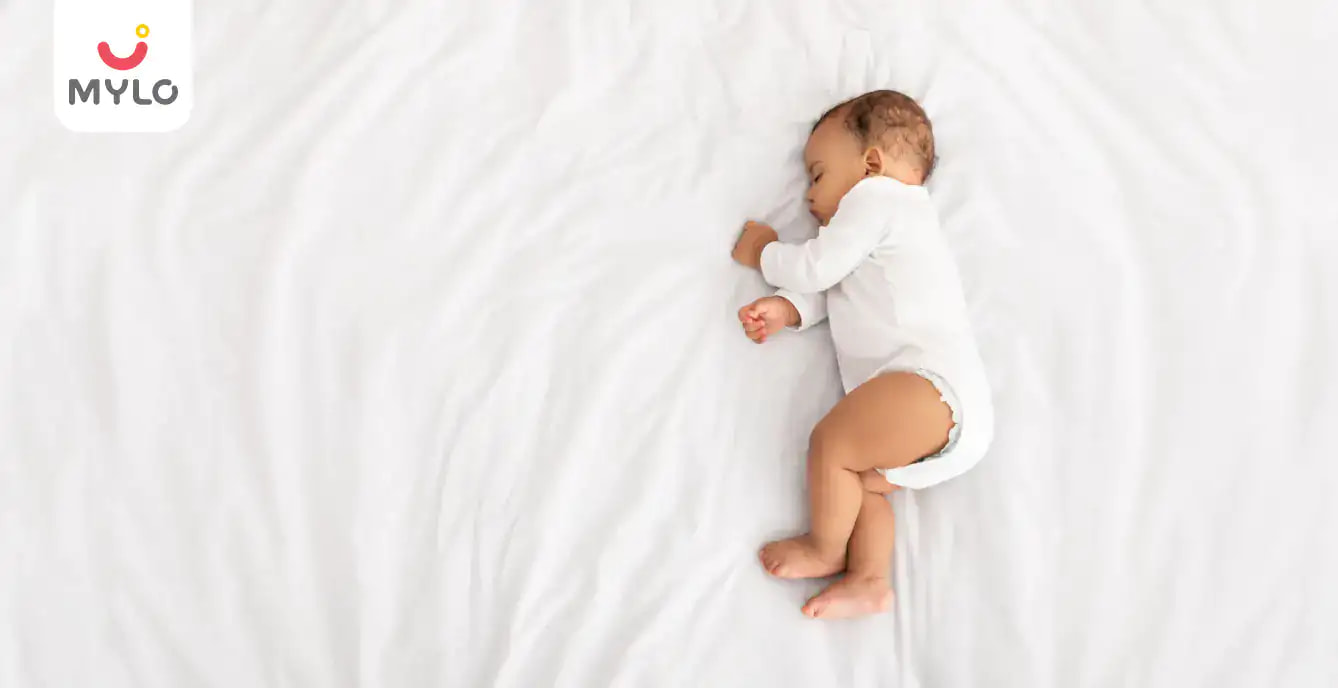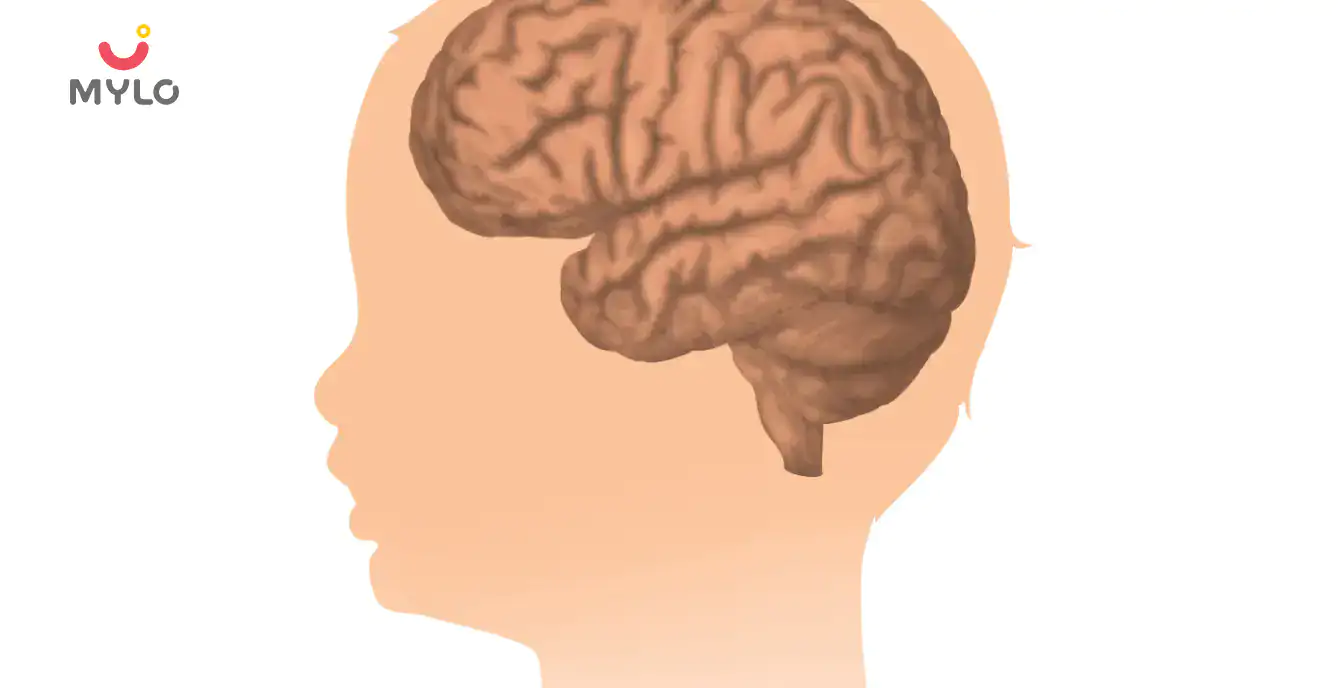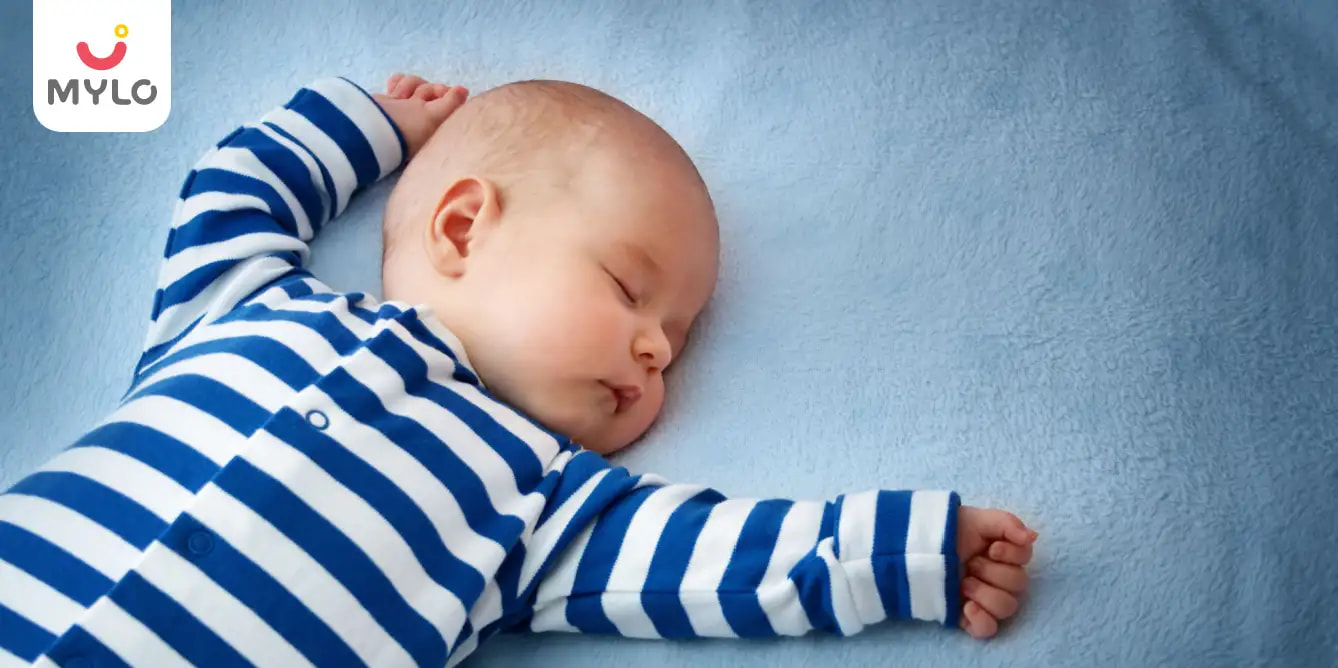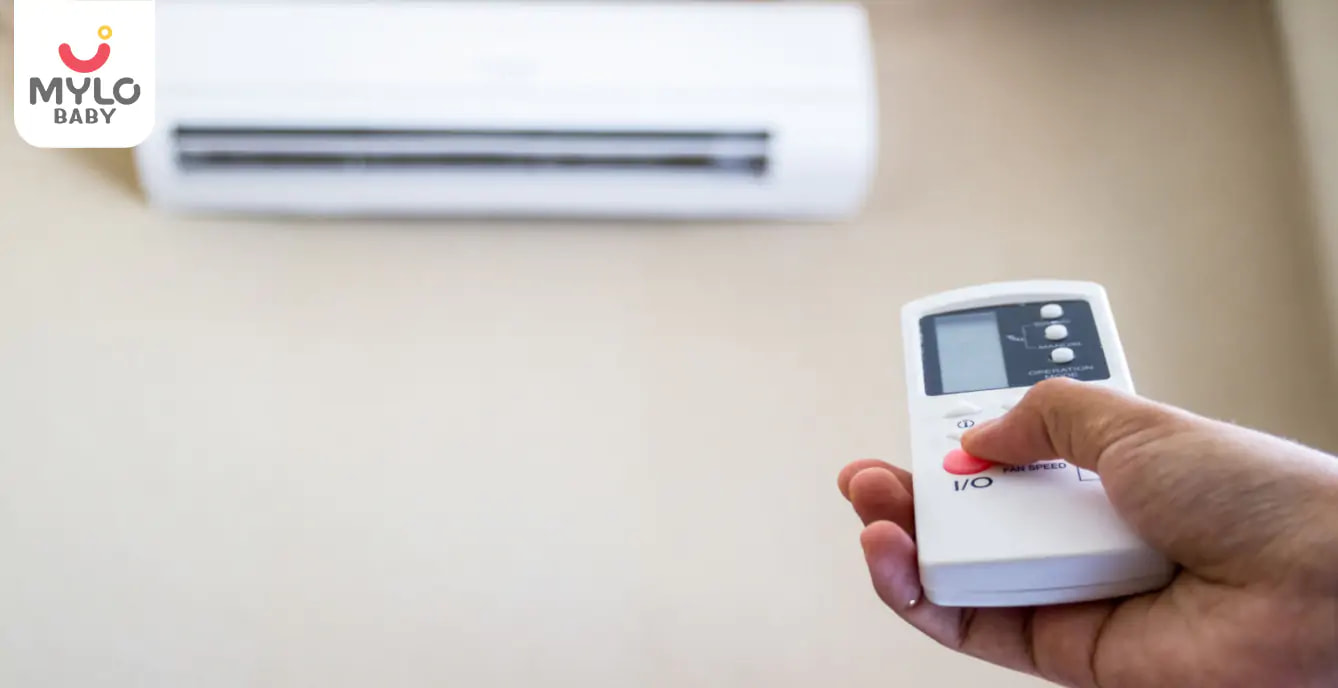Home

Baby Sleep Management

How to Establish Good and Effective Baby Sleep Habits?
In this Article

Baby Sleep Management
How to Establish Good and Effective Baby Sleep Habits?
Updated on 12 May 2023



Medically Reviewed by
Dr. Sameer Awadhiya
Dr Sameer has more than 10 Years of Experience as a specialist and more than 19 years of total experience - MBBS| DCH, DNB
View Profile

One of the most common challenges new parents face is making their baby sleep peacefully the whole night. Infants wake up often in the middle of the night for feed or nappy change. This baby's sleeping pattern will gradually change, as your little one grows older. You can start thinking about establishing a bedtime routine for your baby once your baby is 3 months old. A set bedtime routine will play a vital role in the baby's growth and development, and will give plenty of relaxation to the parents as well. There is no need to rush, and you can slowly fix a calming bedtime routine for your baby.
How much sleep do kids need?
The baby's sleeping pattern varies a month after childbirth, and you can see some changes, as your baby can sleep for 14-17 hours a day. You'll observe that your baby will start sleeping more at night and less during the day when they turn 3 months of age.
Toddlers and preschoolers need 11-14 hours of sleep, including naps during the daytime. Avoid delaying daytime naps as that can disrupt the night sleep schedule. At the same time, primary school-age kids need 9-11 hours of sleep. Your child of any age must sleep well every night because that promotes good health.
How to Promote Good Baby Sleeping Habits?
Here are some easy tips that'll help you set up a perfect bedtime routine for your baby:
1. Maintain a bedtime routine
Even on weekends or if you are traveling, try to stay consistent with the bedtime routine. Ensure you are not compromising your child's comfort to fit them into a rigid sleep routine.
You may also like: Do Babies Get a Sound Sleep in Baby Sleeping Bags?
2. Wind up early
Try to wrap up your household chores and office work 30 minutes before the planned bedtime so you're on time for your child's bedtime routine.
3. Infant Massage
Give a soothing massage or bath before bedtime to help calm your baby and make them fall asleep sooner. Don't forget to dress your baby in comfortable nightwear.
Also read: How To Put A Baby To Sleep In 40 Seconds?
4. Introduce bedtime stories
Reading bedtime stories before sleep or singing lullabies to your child will help them know it's bedtime and relax their mind. You can also invest in a sleeping bag to make your baby comfortable and can help them to quickly doze off.
5. No gadgets before bedtime
Don't let your child use a computer, tv, or smartphone at least an hour before bedtime as it can stimulate or disturb their mind. It would help if you tried calming their senses before bedtime so they could sleep soundly.
Things to Keep in Mind Before Putting Your Baby to Sleep
Here are some things that you should keep in mind to help your child fall asleep faster and sleep peacefully:
-
Make sure your baby is not overfed or underfed before going to bed.
-
Place your infant in bed when they are sleepy but not yet asleep.
-
Do not put your baby in bed with a milk bottle because, per the pediatrician, it can lead to tooth decay and cavities.
-
Make your child's bedroom tidy and comfortable.
-
Encourage some outdoor playtime and allow your kids to breathe in some fresh air and get exposed to sunlight.
-
Ensure you do not place any objects, toys, stuff, or electronic gadgets near your baby's crib.
-
The room's temperature should be normal by not keeping it too cold or hot.
-
Ensure your infant sleeps on their back and not on the tummy side. Be watchful of your baby's sleeping posture, and don't let your baby sleep in one posture for too long, as that can cause sprains and aches in the body. You can also use mustard pillow for head and neck support.
-
You must immediately rush to the doctor if you observe your child snoring too loudly or taking long pauses in breathing during sleep.
-
Be flexible and listen to your child, as that'll help you make changes in the bedtime routine if required.
-
To promote good sleeping habits in your child, you should focus on their nutrition and exercise routine.
Final Thoughts
The human body's internal clock releases melatonin, which controls our sleep patterns. It keeps us awake during the day and stimulates sleep at night. Good baby sleeping habits help maintain melatonin levels that help them sleep better, and they'll fall asleep within 20 minutes after bed.

Premium Head Shaping Pillow 0-36 Months - Shades of Grey
Provides Neck Support | Prevents Flat Head Syndrome | Portable & Lightweight
₹ 484

4.0
(1543)


3601 Users bought





Medically Reviewed by
Dr. Sameer Awadhiya
Dr Sameer has more than 10 Years of Experience as a specialist and more than 19 years of total experience - MBBS| DCH, DNB
View Profile


Written by
Ravish Goyal
Official account of Mylo Editor
Read MoreGet baby's diet chart, and growth tips

Related Articles
RECENTLY PUBLISHED ARTICLES
our most recent articles

skin care
Giant Congenital Melanocytic Nevus: Causes, Symptoms, & Treatment

Fears & Phobias
Tokophobia: How to Manage Your Phobia of Pregnancy & Childbirth

Low BP in Pregnancy: Symptoms, Effects & Treatments
Twins & Triplets
Helping your twins to sleep at the same time

Brain Development
Baby Brain Development: What You Should Know

Medical Procedures
Tummy Tuck (Abdominoplasty) Procedure, Risks, Preparation & Recovery
- Spina Bifida: Causes, Symptoms & Treatment
- Diastasis Recti: Causes, Symptoms, Risks & Preventions
- Opioid Overdose, Risk & Prevention
- Is Pregnancy After 35 Right for You? A Comprehensive Guide
- Clubfoot (Talipes Equinovarus): Meaning, Symptoms & More
- RSV (Respiratory Syncytial Virus): Symptoms, Causes & Treatment
- Loose Vagina: Learn How To Tighten Your Vagina Naturally
- Umbilical Cord Prolapse Causes, Symptoms & Treatment
- Bipolar Disorder: Causes, Symptoms, Risks & Treatment
- Sinus Infection During Pregnancy Causes & Treatment
- Intrauterine Growth Restriction (IUGR) in Pregnancy
- APGAR Score: Meaning & How it is Performed
- Dyspareunia (Painful Intercourse): Causes & Treatment
- Short Bowel Syndrome: Causes, Symptoms, and Treatment


AWARDS AND RECOGNITION

Mylo wins Forbes D2C Disruptor award

Mylo wins The Economic Times Promising Brands 2022
AS SEEN IN
















- Mylo Care: Effective and science-backed personal care and wellness solutions for a joyful you.
- Mylo Baby: Science-backed, gentle and effective personal care & hygiene range for your little one.
- Mylo Community: Trusted and empathetic community of 10mn+ parents and experts.
Product Categories
baby carrier | baby soap | baby wipes | stretch marks cream | baby cream | baby shampoo | baby massage oil | baby hair oil | stretch marks oil | baby body wash | baby powder | baby lotion | diaper rash cream | newborn diapers | teether | baby kajal | baby diapers | cloth diapers |








